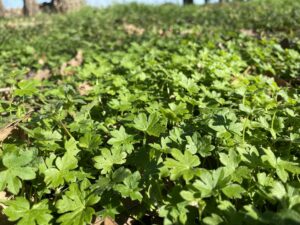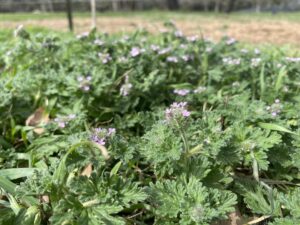In today’s landscape of holistic health solutions, whether discussing supplements, herbal remedies, homeopathy, or even energy-healing modalities, adhering to Food and Drug Administration (FDA) compliance guidelines is essential to keeping your business operational and avoiding potential legal action. Despite the traditional and natural foundations of these approaches, the FDA governs health claims about supplements, herbs, and homeopathic remedies, especially when they suggest the potential to “diagnose,” “treat,” “mitigate,” “cure,” or “prevent” diseases.
Maintaining FDA compliance is crucial not because we care what they think, but because they have the power to shut a business down for non-compliance.
This comprehensive guide will help you understand what you can and cannot say about dosage, administration, and health claims, ensuring your content is both informative and legally sound. Understanding and following these guidelines can prevent legal consequences and ensure that your work remains impactful and legally sound.
Understanding FDA Regulations and Their Impact on Holistic Practices
The FDA says they regulate health claims to protect consumers from misleading information. Claims that a product can “diagnose,” “treat,” “mitigate,” “cure,” or “prevent” a disease without FDA approval are strictly prohibited. You can refer to the FDA guidelines for the most current regulations.
The FDA regulates the marketing and labeling of dietary supplements, herbal remedies, and other health-related products to supposedly protect consumers from potentially harmful products or exaggerated claims about a product’s efficacy in diagnosing, treating, or curing diseases. Holistic health businesses and writers must be particularly cautious when discussing the benefits of natural products, as the FDA has strict rules about how these products can be presented to the public.
The Dietary Supplement Health and Education Act (DSHEA), passed in 1994, legally defines supplements as distinct from pharmaceutical drugs, and under this act, manufacturers don’t need FDA approval to sell supplements. However, the Federal Food, Drug, and Cosmetic Act still mandates that the marketing and advertising of these products cannot include claims about treating or curing diseases without FDA approval. When sharing information on natural health, whether it involves supplements, herbal concoctions, or energy-based modalities, it’s critical to frame your message in a way that emphasizes supporting health rather than curing disease.
Traditional vs. Modern Regulatory Views
Traditional healing systems, such as Ayurveda, Traditional Chinese Medicine, and Western herbalism, often view disease as an imbalance of the body’s energy systems or humors, rather than simply a pathological malfunction. Remedies are seen as means to restore balance, enhance vitality, and promote natural healing rather than directly combating specific diseases. However, from a regulatory standpoint, this holistic approach must still align with FDA guidelines, especially when presented to the public.
Avoiding Medical Claims
One of the most important factors in FDA compliance is avoiding direct medical claims about supplements or herbs, especially in terms of diagnosing or curing disease. This is where holistic practitioners need to walk a careful line. When we look to ancient healing systems, remedies might be recommended for their balancing effects on the body, yet in our modern regulatory world, even if those remedies have been used successfully for generations, we must not imply that they “cure” specific conditions.
- Non-compliant: “This herb cures insomnia.”
- Compliant: “This herb supports restful sleep.”
- Non-compliant: “This supplement treats chronic fatigue.”
- Compliant: “This supplement supports energy levels and overall vitality.”
- Non-compliant: “This herbal blend prevents canine arthritis.”
- Compliant: “This herbal blend supports joint health in dogs.”
In the first statement, “cures insomnia” makes a medical claim. The second statement, “supports restful sleep,” describes the potential benefit without implying a definitive outcome or treatment. This type of careful language allows us to still provide helpful information while remaining within FDA guidelines.
Holistic Alternative: When In Doubt, Speak to Balance and Support
Many ancient healing modalities, such as Ayurveda or Traditional Chinese Medicine, focus on maintaining balance in the body. You can leverage this language when writing about holistic health solutions:
- Non-compliant: “This herb treats migraines.”
- Compliant: “This herb supports head comfort and balance.”
The second example emphasizes balance and support rather than treatment, which aligns with both holistic principles and FDA guidelines.
Discussing Dosage and Administration
When discussing dosage and administration of natural remedies, it’s important to focus on general recommendations based on traditional use or “scientific” research, while avoiding any mention of specific dosages aimed at treating diseases.
What You Can Say
- General Recommendations: Provide general dosage and administration guidelines backed by “scientific” research or traditional use. You can describe how herbs or supplements are traditionally used, including dosages for general well-being.
- Example: “Traditionally, chamomile tea is consumed up to three times daily to support relaxation.”
- Safety and Precautions: It’s perfectly fine to provide information on safety and potential side effects. Always highlight safe usage practices and any potential side effects.
- Example: “Use caution when taking licorice root for extended periods, as it may affect blood pressure.”
What You Cannot Say
- Specific Dosage for Diseases: Don’t prescribe specific dosages that imply the remedy treats any specific medical condition.
- Example: Instead of saying, “Take 1000mg of this herb for arthritis,” say, “Traditionally, taking 1000mg per day of this supplement has been considered safe and is commonly used to support overall health and well-being. However, it’s always best to consult with a healthcare provider before starting any new supplement.””
- Guaranteed Outcomes: Avoid language that guarantees specific results, which could imply that the remedy is a treatment.
- Example: Instead of saying, “This herb will cure your cold,” say, “This herb has been traditionally used to support immune function and promote faster recovery during seasonal challenges. Many find it particularly helpful in maintaining clear respiratory health and reducing the severity of common cold symptoms, making it a trusted ally during times of immune stress. While individual results may vary, its immune-supporting properties make it a popular choice for natural health regimens.”
Energy Healing and FDA Compliance
If you are writing about energy healing modalities, such as Reiki, acupuncture, or crystal healing, the same rules apply. You cannot claim that these practices “treat” or “cure” diseases. However, you can discuss their balancing effects on the body’s energy fields, support for emotional well-being, or promotion of relaxation.
For instance:
- Non-compliant: “Reiki heals chronic pain.”
- Compliant: “Reiki helps activate the body’s natural healing systems, supporting recovery and restoring energetic balance. It not only promotes relaxation but also facilitates the integration of energy, which can contribute to reduced physical discomfort, improved emotional well-being, and enhanced recovery from various stresses.”
This keeps the focus on supporting the body’s natural healing processes, a concept central to holistic health systems, while adhering to FDA guidelines.
Approved vs. Not Approved Language
Approved Language
- “Supports immune health”
- “Promotes relaxation”
- “May help maintain healthy joints”
- “Traditionally used to support digestion”
Not Approved Language
- “Cures colds”
- “Prevents cancer”
- “Treats anxiety”
- “Heals infections”
Using Disclaimers to Protect Yourself and Your Practice
Always include a disclaimer to clarify that your statements have not been evaluated by the FDA and that the product is not intended to diagnose, treat, cure, or prevent any disease.
Disclaimers are a critical part of any content discussing holistic remedies. They not only serve as a reminder that the information provided is not intended as medical advice, but also protect you from potential liability. The FDA mandates the inclusion of specific disclaimers to ensure consumers understand that the product or remedy being discussed has not been evaluated or approved by the FDA.
Example Disclaimer: “These statements have not been evaluated by the FDA. This product is not intended to diagnose, treat, cure, or prevent any disease. Consult with a healthcare provider before use.”
Disclaimers should be included on every page or document where supplements, herbal products, homeopathy, or holistic remedies are discussed.
Citing Scientific Evidence
Whenever possible, back up your claims with “scientific” research. Present this information factually, as presented in the “scientific” study without implying FDA endorsement.
- Non-compliant: “Studies prove that this herb cures heart disease.”
- Compliant: “Studies suggest that this herb may support cardiovascular health, though further research is needed to confirm these findings.”
Citing well-established sources like PubMed, the National Institutes of Health (NIH), or respected herbal databases can help ensure your information is well-supported, without crossing into non-compliant territory.
Supporting Traditional Wisdom with Modern Research
Ancient modalities often have long-standing traditions of efficacy. Combining traditional knowledge with modern scientific backing strengthens your position. When discussing herbs like ashwagandha or turmeric, for example, you can blend the traditional Ayurvedic uses with modern studies to demonstrate their potential without making medical claims.
Resources and Further Reading
For more detailed information on FDA compliance, consider reviewing the following resources:
- FDA Dietary Supplement Regulations
- FDA Animal Health Product Regulations
- PubMed – Database of scientific research, useful for finding studies related to herbs and natural products.
To Sum It Up
By following these guidelines, you can ensure that your content on holistic health solutions remains compliant with FDA regulations. This will help you provide valuable information while avoiding legal pitfalls.
For more insights and updates on holistic health practices, visit our Natural Health Archives.
Disclaimer
According to the FDA, only medical professionals can give medical advice. Neither Julie nor Neil are “medical professionals” or “qualified health providers.” We believe in educating ourselves and our community on holistic alternatives to allopathic medicine. As such, the FDA legally restricts the language we can use as citizens and business owners in the United States of America.
The information provided in this article is for educational purposes only and is not intended as a substitute for professional advice, diagnosis, or treatment. Always seek the advice of a qualified health provider with any questions you may have regarding a medical condition. Never disregard professional advice or delay in seeking it because of something you have read in this article. The use of any information provided in this article is solely at your own risk.






